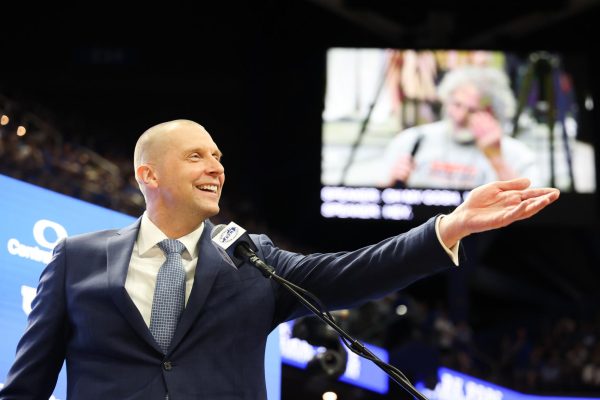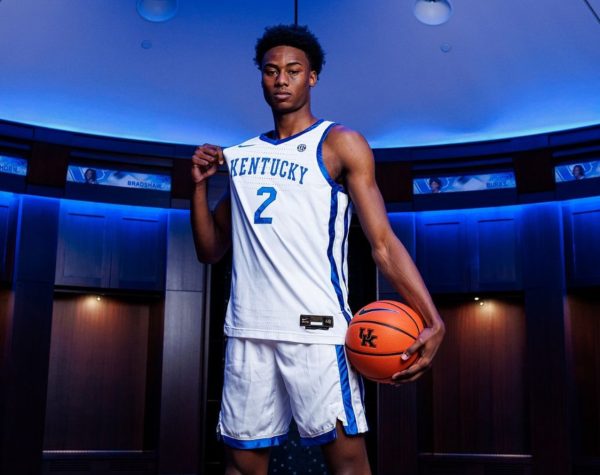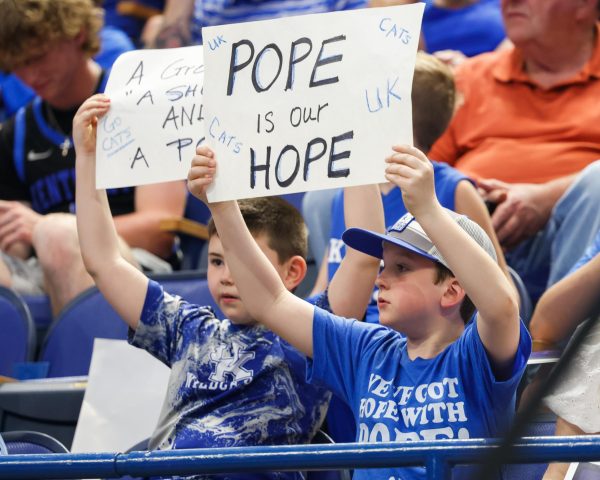Agnostic and Christian debate to launch religious symposium
October 11, 2011
By: Joy Priest
The compatibility of faith and historical events has been questioned by many scholars over the years. Science in religion, religion in state matters, and faith and reason remain controversial topics of discussion in our society.
This was also the debate between an agnostic academic and a professor of faith as they opened the “On Religion in the 21st Century” symposium Monday night, presented by the UK Gaines Center for the Humanities.
Bart Ehrman, a professor in the department of religious studies at the University of North Carolina at Chapel Hill, said for him, personally, “history and faith are not compatible.”
Ehrman, an academic who can be easily be “Googled” to find he has authored more than 20 books, spoke about the introductory undergraduate course in New Testament studies he teaches at UNC.
“My students believe in the Bible more than they know about it,” Ehrman said at the beginning of his speech. He talked about the lack of knowledge of the Bible students reveal in a pop quiz they take on the first day of his class every year.
Ehrman said three steps led him to his current position as an agnostic and away from being a fundamentalist Christian.
“I was a fundamentalist,” Ehrman said. “No ‘fun,’ too much ‘damn’ and not enough ‘mental.’”
The three steps were his study of the early manuscripts of the Bible, his historical investigation of the Bible itself and his historical critical study outside of the Bible.
“I could no longer believe that there was a loving, all-powerful God in control of this world,” Erhman said.
David G. Hunter, a professor at UK in the department of modern and classical languages, literatures and cultures, took the opposite side of the debate as person of Catholic faith.
He discussed faith as “a particular way of looking at the world,” saying faith and unfaith were “different interpretations of reality.”
Hunter began his discussion addressing the topic of whether faith and history are compatible.
“Faith and reason can never be in complete conflict,” Hunter said, giving the explanation that they were of different perspectives.
The 2011 Bale Boone Symposium in the Humanities, “On Religion in the 21st Century,” will continue on Tuesday with two speakers. Jonathan Miller, a senior adviser at Wellford Energy, will talk about “The Compassionate Community: How Universal Ecumenical Values Can Strengthen Politics,” and Ihsan Bagby, a professor in Arabic and Islamic studies at UK, will talk about “Islam and the Relation of Religion to State.”
On Wednesday, the symposium will conclude with a debate similar to Monday evening’s called “Science and Religion: Are They Compatible?” featuring Jerry Coyne, an ecologist from the University of Chicago, and John Haught, a research fellow in science and religion at Georgetown University.
IF YOU GO
What: On Religion in the 21st Century
Where: Recital Hall in the Singletary Center (Tuesday), Center Theater in the Student Center (Wednesday)
When: Wednesday and Tuesday at 6 p.m.
Admission: Free



















































































































































